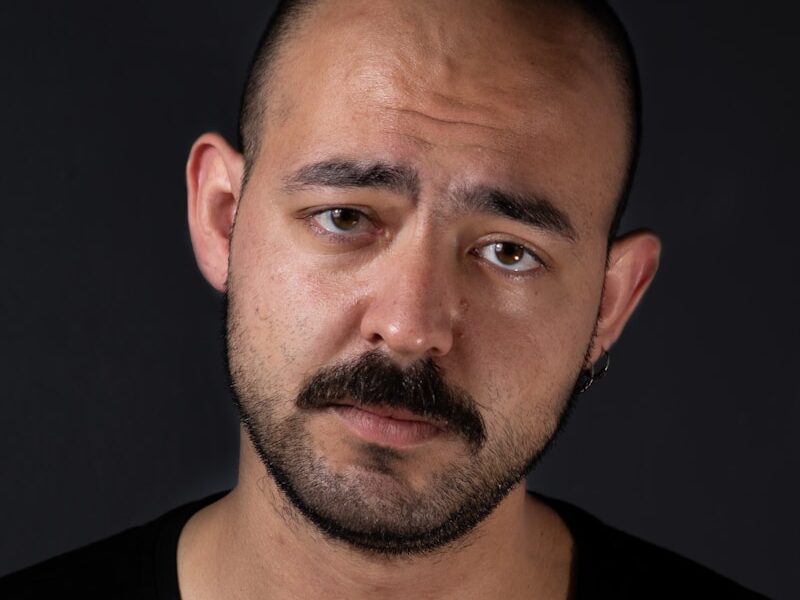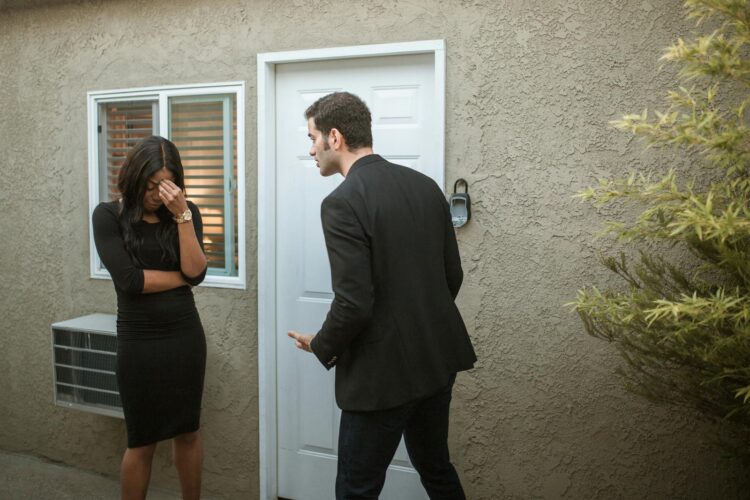
A marriage doesn’t usually unravel in one dramatic moment. Emotional withdrawal often happens in quiet shifts — small changes that pile up until the distance is impossible to ignore. He may still be physically present, going through daily routines, but the connection feels thinner, the warmth fainter. These signs can help you notice when a man’s heart is no longer fully in the marriage, even if he hasn’t said it out loud.
He Stops Sharing About His Day

Conversations that once came naturally now feel flat. When you ask how work went, he gives quick, vague answers and rarely offers details unless prompted. The little stories — about a funny coworker, an odd customer, or something that made him think of you — vanish. It’s not just less talking; it’s less letting you in on the daily fabric of his life.
Affection Becomes Rare

The casual touches fade — no more reaching for your hand in the grocery store or leaning in for a goodnight kiss without thinking. Even hugs feel shorter, as if they’re being given out of habit instead of affection. The absence isn’t always dramatic, but it’s noticeable in the quiet moments, when you realize you can’t remember the last time you felt that warmth without having to initiate it.
He Seems Distracted Around You

Even when he’s in the same room, his mind feels elsewhere. He scrolls on his phone while you talk or keeps his eyes on the TV during dinner. You might pause mid-story and realize he didn’t catch what you said. It’s not just about multitasking — it’s about how present he chooses to be, and lately, his focus seems to be anywhere but on you.
Arguments Feel Pointless

Disagreements used to spark discussion, even if they were uncomfortable. Now, he ends them quickly, changes the subject, or simply agrees to avoid engaging. There’s no effort to reach a resolution because it doesn’t seem to matter to him anymore. This kind of detachment turns conflict into a formality — something to move past, not something to work through together.
He No Longer Asks About You

Questions about your day, your mood, or your plans become rare. When you do share something important, his reaction is polite but minimal — a quick nod, a short “That’s nice” before moving on. It’s not that he disagrees or disapproves; it’s that he no longer shows the curiosity that builds connection. You start to feel less like a partner and more like a background character.
Time Together Feels Like a Chore

Date nights, weekend plans, or even just cooking dinner together start to feel forced. He goes along with them but with little enthusiasm, as if he’s ticking something off a list. The spark in shared activities is missing, replaced by a sense of obligation. You catch yourself wondering if he’s actually enjoying himself or simply showing up because it’s expected.
He’s Less Involved in the Household

From everyday chores to big decisions, his participation starts to shrink. He might leave bills for you to handle, skip out on errands, or avoid weighing in on important choices. The imbalance isn’t just about workload — it’s about how much of the shared life he’s choosing to invest in. His absence in the small things reflects a broader emotional withdrawal.
He Chooses Solitude More Often

Spending time alone can be healthy, but now it feels like avoidance. He retreats to another room after dinner, takes long drives without explanation, or fills his evenings with activities that don’t involve you. These moments pile up, leaving you with the sense that he prefers the quiet of being alone over the connection of being together.
You Stop Being His First Call

When something significant happens — a promotion, a setback, even a random observation — you no longer hear it from him first. You might find out later, in passing, or through someone else. That shift from being the first to know to just another person he updates marks a change in emotional intimacy, even if everything else looks normal from the outside.
He Shows Less Patience With You

Little things that never used to bother him now trigger visible irritation. He may sigh when you ask a question, respond with sharp tones, or seem annoyed by minor inconveniences. The change isn’t just moodiness — it’s the erosion of empathy and tolerance that often comes with emotional distance. You start adjusting your behavior to avoid setting him off.
Shared Future Plans Disappear

Talking about vacations, home improvements, or long-term dreams used to be part of your conversations. Now, they’ve vanished. If the topic comes up, he offers vague answers or avoids committing to anything. The absence of future-oriented talk isn’t just a lack of planning — it’s a sign he’s stopped picturing the two of you moving forward together.
He Stops Noticing the Little Things

He used to notice when you got a haircut, wore a new outfit, or seemed unusually tired. Those small observations, once part of the rhythm of your relationship, disappear. It’s not about wanting constant compliments — it’s about being truly seen. When that awareness fades, it’s often because his focus has shifted inward or elsewhere.
Conversations Stay Surface-Level

The deep, vulnerable talks that built closeness have been replaced with safe, shallow topics — schedules, chores, what’s for dinner. You might still talk every day, but it feels like skimming the surface rather than connecting. It’s not the absence of words that hurts, but the absence of real substance in what’s shared.
He Seems Indifferent to Your Emotions

When you’re upset, he acknowledges it briefly but doesn’t engage in helping you feel better. Your excitement over good news earns a polite smile instead of shared enthusiasm. Indifference can be more painful than disagreement — it signals that your emotional world is no longer a place he chooses to enter.
Your Gut Tells You Something’s Changed

Even without one clear moment to point to, you feel it — the gap between you has grown. You notice the missing warmth in his voice, the pauses where connection used to be, and the way his presence feels more like coexisting than sharing a life. Deep down, you know when someone’s heart has already stepped back.

